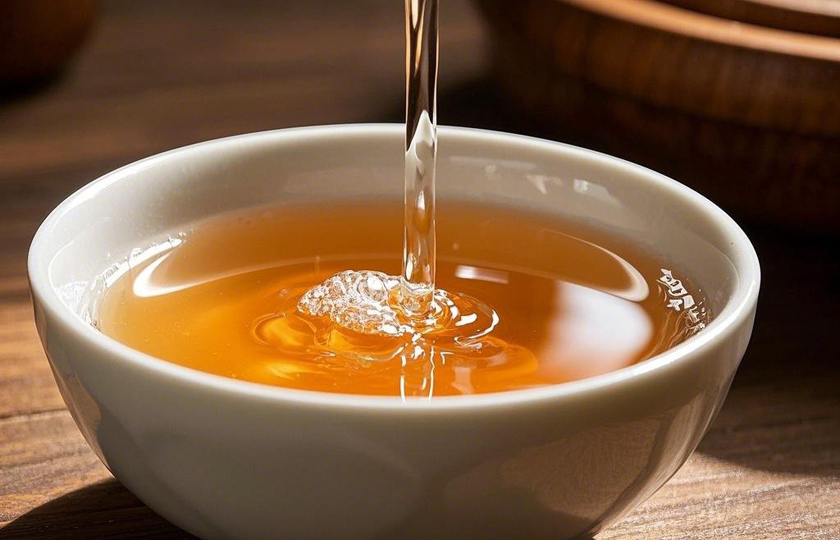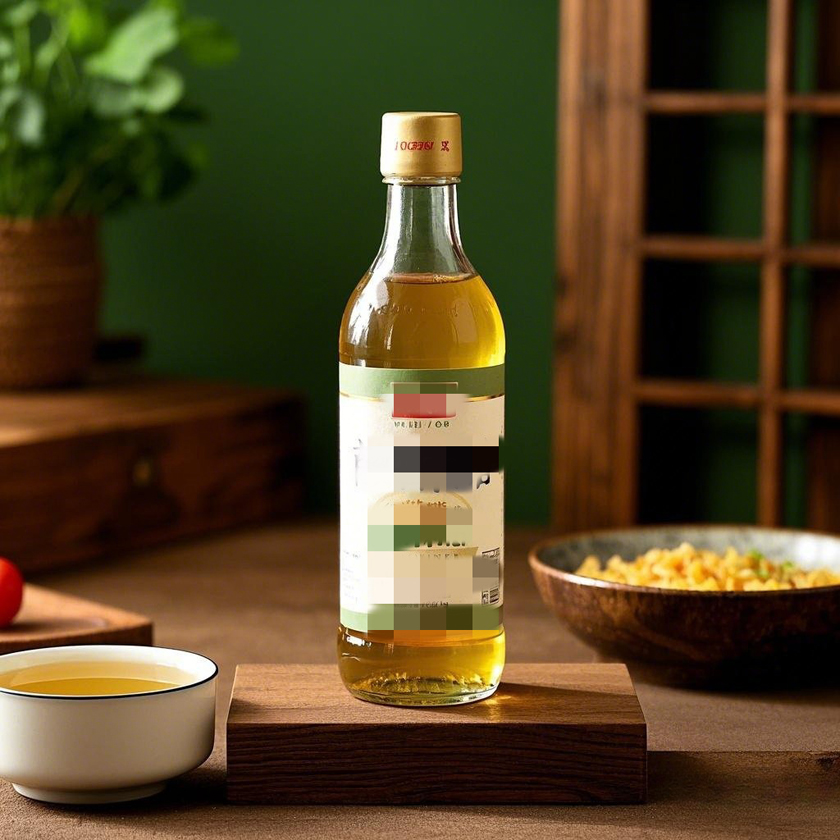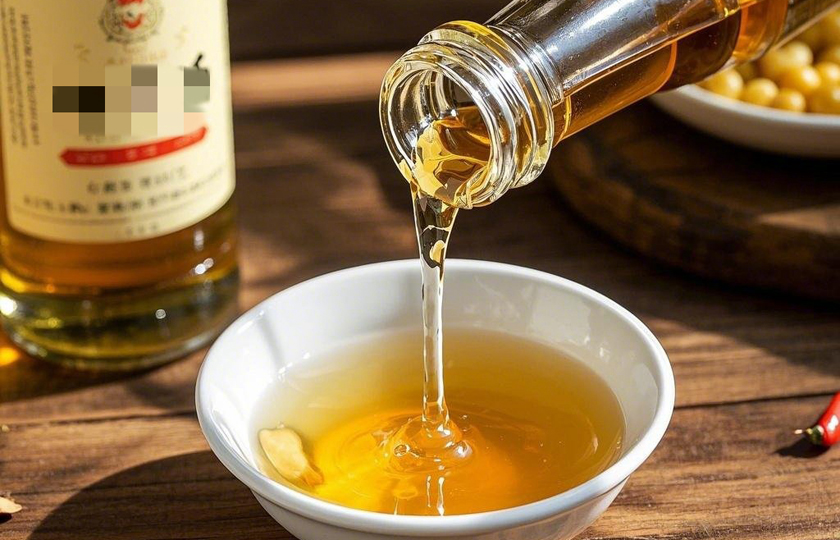Does Rice Vinegar Go Bad? Find Out Now!

When I was tidying up the kitchen a few days ago, I found that the bottle of rice vinegar in the corner was almost covered with dust. Suddenly, I thought: How long can rice vinegar be stored? I checked a lot of information and shared it with you today. This knowledge is so important!
Rice vinegar generally does not deteriorate easily
This is because the main component of rice vinegar is acetic acid. Its acidic environment has an inhibitory effect on most microorganisms, making rice vinegar relatively less likely to be contaminated and damaged by microorganisms during storage.
However, if it is stored improperly (such as at high temperature, humidity or direct sunlight) or contaminated after being opened, it may still deteriorate.
How to tell if rice vinegar is bad?
1. Observe the color: Pure rice vinegar should be amber, slightly golden and translucent, and shiny. If you find that the color of rice vinegar darkens or becomes cloudy, it may have deteriorated.
2. Smell the odor: Fresh rice vinegar should have a clean, tangy scent. If it develops a foul odor or smells moldy, it may have gone bad.
3. Taste the taste: Take a small sip and taste it carefully. Good rice vinegar should be naturally sour and fragrant. If the taste becomes sharp, pungent or tastes unusual, it may have gone bad.
4. Shake the foam: Shake the bottle of rice vinegar. High-quality rice vinegar will produce rich and delicate foam that lasts for a long time. If the foam is large and disappears quickly, it may be inferior vinegar.
5. Sediment situation: High-quality rice vinegar generally does not have sediment or only a very small amount of sediment. If you find that there are more lumpy, flocculent and other sediments at the bottom of rice vinegar, it may have deteriorated.
6. Check the bottle mouth: If there is mold or other foreign matter around the bottle mouth, it is best not to use it again.

Is it safe to use expired rice vinegar?
If expired rice vinegar has no obvious signs of deterioration (such as discoloration, peculiar smell, sediment, mildew, etc.), it is usually safe.
However, the sourness of rice vinegar may weaken and affect the taste of dishes.
It is recommended to follow the expiration date and use fresh rice vinegar to ensure the best taste.
Do I refrigerate rice vinegar after opening?
After opening, rice vinegar generally does not need to be refrigerated.
Due to the strong acidity of rice vinegar, it can naturally inhibit the growth of bacteria, so it can be stored at room temperature.
As long as it is stored in the correct way (seal the bottle mouth and avoid direct sunlight and humid environment), rice vinegar can usually maintain good quality for several months or even longer.
Although refrigeration is not necessary, it helps to maintain the flavor.
How to store rice vinegar after opening
1. Store in a cool and dry place:
Put rice vinegar in a cool and dry place, such as a kitchen cabinet or storage room, to avoid high temperature and direct sunlight.
2. Seal the bottle mouth:
After each use, make sure the bottle mouth is tightly sealed to prevent air from entering and avoid affecting the flavor.
3. Container selection:
Select glass bottles or stainless steel containers as storage containers because they are stable and will not have chemical reactions with rice vinegar.
Avoid using metal containers because metals may react with the ingredients in rice vinegar and affect the quality.
4. Regular inspection:
Regularly check the preservation status of rice vinegar, such as color, odor, taste, etc.
If signs of turbidity, peculiar smell, taste change, etc. are found in rice vinegar, it may be a sign of deterioration and should be discarded immediately.

How long does rice vinegar last after opened
After opening, rice vinegar can usually be stored for 6 months to 1 year or even longer, depending on the storage conditions.
If you need to extend the storage time, it is recommended to put rice vinegar in a sealed container and store it in a cool, dry, and dark place, or store it in the refrigerator to slow down the oxidation and deterioration process.
Comparison with other types of vinegar
Rice vinegar has different acidity and flavor from other vinegars. Its acidity is usually lower than that of apple cider vinegar or white wine vinegar. This makes rice vinegar less pungent and more suitable for making delicate dishes.
Apple cider vinegar has a fruity flavor, while white wine vinegar has a refreshing sour taste. Balsamic vinegar is known for its rich sweetness. In contrast, the sweetness of rice vinegar is very faint and will not overwhelm the flavors of other ingredients.
Rice vinegar is mild in nature and is an excellent choice for Asian-flavored dishes. Compared with strong vinegars, rice vinegar is less likely to cover up other flavors. This characteristic enables rice vinegar to enhance rather than dominate the overall flavor of dishes.
Cooking uses of rice vinegar
Rice vinegar is a key ingredient in many Asian dishes, especially in Chinese, Japanese and Korean cuisines.
1. Seasoning: Rice vinegar used for seasoning can increase the sourness and freshness of dishes. It is often used in stir-fries, cold dishes and soups.
2. Pickling: Rice vinegar is a common material for pickling vegetables, fish and meat. It can remove fishy smell, enhance fragrance and help the ingredients absorb flavors.
3. Making sauces and seasonings: Rice vinegar is often used to make various sauces such as sweet and sour sauce, soy sauce and vinegar mixture. Adding rice vinegar to seasonings can balance the taste.
4. Making sushi rice: Rice vinegar is one of the important ingredients for sushi rice. It can make the rice more elastic and add a subtle sweet and sour taste.
5. Tenderizing meat: When pickling meat, rice vinegar can help break down the meat fiber and make the meat more tender.
6. Enhancing fragrance and flavor: When stir-frying or stewing dishes, adding a little rice vinegar can brighten the flavor of the dishes and increase the layering.
Substitutes for rice vinegar
1. Apple cider vinegar: Apple cider vinegar has a mild taste and moderate acidity. It is one of the best substitutes for rice vinegar, especially suitable for salad dressings and pickled foods.
2. White vinegar: White vinegar has a stronger sour taste. But it can be used as a substitute for rice vinegar. It is suitable for dishes that need sourness, such as stir-fries or making sauces.
3. Balsamic vinegar: Particularly suitable for Chinese dishes. Balsamic vinegar has a more complex flavor. It is suitable for stewing and seasoning.
4. Grape vinegar: Slightly stronger than rice vinegar. It is suitable for some dishes that do not need excessive sourness.
5. Lemon juice: Although it is not vinegar, the sourness and freshness of lemon juice can be used as a substitute for rice vinegar. Especially suitable for making marinades or sour seasonings.























